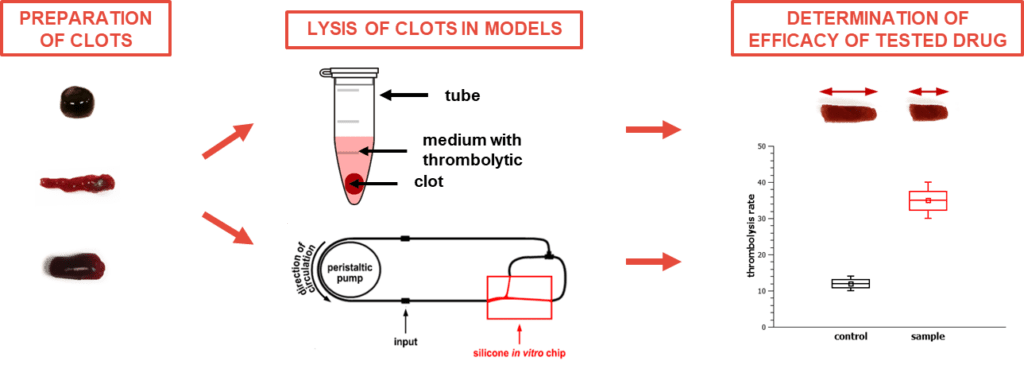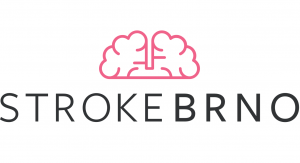Thrombolysis in relation to ischemic stroke
Responsible person: Jan Víteček
Ischemic stroke is a disease with very high socioeconomic burden worldwide due to high incidence, mortality and morbidity. Ischemic stroke is caused by an occlusion of one or multiple cerebral arteries with a blood clot. Treatment priority in acute ischemic stroke is recanalization of such occluded artery. Currently, intravenous thrombolysis with a recombinant tissue plasminogen activator (rt-PA, alternatively known as alteplase) and/or endovascular therapy (mechanical thrombectomy) are the only clinically approved treatment options. Of those, who receive rt-PA, more than a half fail to respond to the drug. The factors behind limited efficacy of rt-PA are still poorly understood a complicate novel thrombolytic drug design.

Therefore, we focus on the in vitro modeling of events critical to vessel occlusion formation and thrombolysis or recanalization with a special emphasis of novel thrombolytic drug development. We have joined the extensive cooperation network covered by Stroke Brno research cluster, where multiple partners bring an extensive expertise and interdiciplinarity.
